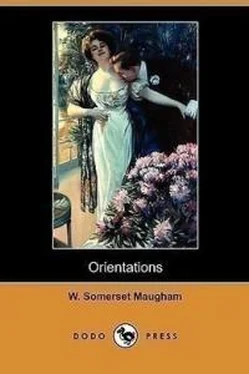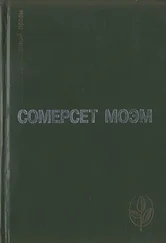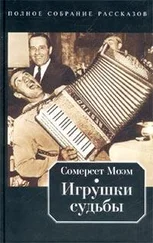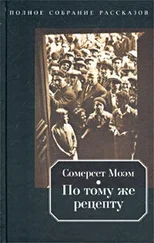Уильям Моэм - Orientations
Здесь есть возможность читать онлайн «Уильям Моэм - Orientations» весь текст электронной книги совершенно бесплатно (целиком полную версию без сокращений). В некоторых случаях можно слушать аудио, скачать через торрент в формате fb2 и присутствует краткое содержание. Год выпуска: 2014, Издательство: epubBooks Classics, Жанр: Классическая проза, на английском языке. Описание произведения, (предисловие) а так же отзывы посетителей доступны на портале библиотеки ЛибКат.
- Название:Orientations
- Автор:
- Издательство:epubBooks Classics
- Жанр:
- Год:2014
- ISBN:нет данных
- Рейтинг книги:5 / 5. Голосов: 1
-
Избранное:Добавить в избранное
- Отзывы:
-
Ваша оценка:
- 100
- 1
- 2
- 3
- 4
- 5
Orientations: краткое содержание, описание и аннотация
Предлагаем к чтению аннотацию, описание, краткое содержание или предисловие (зависит от того, что написал сам автор книги «Orientations»). Если вы не нашли необходимую информацию о книге — напишите в комментариях, мы постараемся отыскать её.
Orientations — читать онлайн бесплатно полную книгу (весь текст) целиком
Ниже представлен текст книги, разбитый по страницам. Система сохранения места последней прочитанной страницы, позволяет с удобством читать онлайн бесплатно книгу «Orientations», без необходимости каждый раз заново искать на чём Вы остановились. Поставьте закладку, и сможете в любой момент перейти на страницу, на которой закончили чтение.
Интервал:
Закладка:
But as for Amyntas, when the sisters had retired, he again took his bride in his arms, and covered her lips with kisses; and she, putting her arms round his neck, said with a smile,—
'I have waited for you so long, my love, so long!'
And here it is fit that we should follow the example of the three sisters, and retire also.
The moral of this story is, that if your godfathers and godmothers at your baptism give you a pretty name, you will probably marry the most beautiful woman in the world and live happily ever afterwards…. And the platitudinous philosopher may marvel at the tremendous effects of the most insignificant causes, for if Amyntas had been called Peter or John, as his mother wished, William II. might be eating sauerkraut as peacefully as his ancestors, the Lord Mayor of London might not drive about in a gilded carriage, and possibly even—Mr Alfred Austin might not be Poet Laureate….
Daisy
I
It was Sunday morning—a damp, warm November morning, with the sky overhead grey and low. Miss Reed stopped a little to take breath before climbing the hill, at the top of which, in the middle of the churchyard, was Blackstable Church. Miss Reed panted, and the sultriness made her loosen her jacket. She stood at the junction of the two roads which led to the church, one from the harbour end of the town and the other from the station. Behind her lay the houses of Blackstable, the wind–beaten houses with slate roofs of the old fishing village and the red brick villas of the seaside resort which Blackstable was fast becoming; in the harbour were the masts of the ships, colliers that brought coal from the north; and beyond, the grey sea, very motionless, mingling in the distance with the sky…. The peal of the church bells ceased, and was replaced by a single bell, ringing a little hurriedly, querulously, which denoted that there were only ten minutes before the beginning of the service. Miss Reed walked on; she looked curiously at the people who passed her, wondering….
'Good–morning, Mr Golding!' she said to a fisherman who pounded by her, ungainly in his Sunday clothes.
'Good–morning, Miss Reed!' he replied. 'Warm this morning.'
She wondered whether he knew anything of the subject which made her heart beat with excitement whenever she thought of it, and for thinking of it she hadn't slept a wink all night.
'Have you seen Mr Griffith this morning?' she asked, watching his face.
'No; I saw Mrs Griffith and George as I was walking up.'
'Oh! they are coming to church, then!' Miss Reed cried with the utmost surprise.
Mr Golding looked at her stupidly, not understanding her agitation. But they had reached the church. Miss Reed stopped in the porch to wipe her boots and pass an arranging hand over her hair. Then, gathering herself together, she walked down the aisle to her pew.
She arranged the hassock and knelt down, clasping her hands and closing her eyes; she said the Lord's Prayer; and being a religious woman, she did not immediately rise, but remained a certain time in the same position of worship to cultivate a proper frame of mind, her long, sallow face upraised, her mouth firmly closed, and her eyelids quivering a little from the devotional force with which she kept her eyes shut; her thin bust, very erect, was encased in a black jacket as in a coat of steel. But when Miss Reed considered that a due period had elapsed, she opened her eyes, and, as she rose from her knees, bent over to a lady sitting just in front of her.
'Have you heard about the Griffiths, Mrs Howlett?'
'No!…What is it?' answered Mrs Howlett, half turning round, intensely curious.
Miss Reed waited a moment to heighten the effect of her statement.
'Daisy Griffith has eloped—with an officer from the dépôt at Tercanbury.'
Mrs Howlett gave a little gasp.
'You don't say so!'
'It's all they could expect,' whispered Miss Reed. 'They ought to have known something was the matter when she went into Tercanbury three or four times a week.'
Blackstable is six miles from Tercanbury, which is a cathedral city and has a cavalry dépôt.
'I've seen her hanging about the barracks with my own eyes,' said Mrs Howlett, 'but I never suspected anything.'
'Shocking! isn't it?' said Miss Reed, with suppressed delight.
'But how did you find out?' asked Mrs Howlett.
'Ssh!' whispered Miss Reed—the widow, in her excitement, had raised her voice a little and Miss Reed could never suffer the least irreverence in church…. 'She never came back last night, and George Browning saw them get into the London train at Tercanbury.'
'Well, I never!' exclaimed Mrs Howlett.
'D'you think the Griffiths'll have the face to come to church?'
'I shouldn't if I was them,' said Miss Reed.
But at that moment the vestry door was opened and the organ began to play the hymn.
'I'll see you afterwards,' Miss Reed whispered hurriedly; and rising from their seats, both ladies began to sing,—
O Jesu, thou art standing
Outside the fast closed door,
In lowly patience waiting
To pass the threshold o'er;
We bear the name of Christians
….
Miss Reed held the book rather close to her face, being shortsighted; but, without even lifting her eyes, she had become aware of the entrance of Mrs Griffith and George. She glanced significantly at Mrs Howlett. Mr Griffith hadn't come, although he was churchwarden, and Mrs Howlett gave an answering look which meant that it was then evidently quite true. But they both gathered themselves together for the last verse, taking breath.
O Jesus, thou art pleading
In accents meek and low
….
A—A—men! The congregation fell to its knees, and the curate, rolling his eyes to see who was in church, began gabbling the morning prayers—' Dearly beloved brethren. ' …
II
At the Sunday dinner, the vacant place of Daisy Griffith stared at them. Her father sat at the head of the table, looking down at his plate, in silence; every now and then, without raising his head, he glanced up at the empty space, filled with a madness of grief…. He had gone into Tercanbury in the morning, inquiring at the houses of all Daisy's friends, imagining that she had spent the night with one of them. He could not believe that George Browning's story was true, he could so easily have been mistaken in the semi–darkness of the station. And even he had gone to the barracks—his cheeks still burned with the humiliation—asking if they knew a Daisy Griffith.
He pushed his plate away with a groan. He wished passionately that it were Monday, so that he could work. And the post would surely bring a letter, explaining.
'The vicar asked where you were,' said Mrs Griffith.
Robert, the father, looked at her with his pained eyes, but her eyes were hard and shining, her lips almost disappeared in the tight closing of the mouth. She was willing to believe the worst. He looked at his son; he was frowning; he looked as coldly angry as the mother. He, too, was willing to believe everything, and they neither seemed very sorry…. Perhaps they were even glad.
'I was the only one who loved her,' he muttered to himself, and pushing back his chair he got up and left the room. He almost tottered; he had aged twenty years in the night.
'Aren't you going to have any pudding?' asked his wife.
He made no answer.
He walked out into the courtyard quite aimlessly, but the force of habit took him to the workshop, where, every Sunday afternoon, he was used to going after dinner to see that everything was in order, and to–day also he opened the window, put away a tool which the men had left about, examined the Saturday's work….
Читать дальшеИнтервал:
Закладка:
Похожие книги на «Orientations»
Представляем Вашему вниманию похожие книги на «Orientations» списком для выбора. Мы отобрали схожую по названию и смыслу литературу в надежде предоставить читателям больше вариантов отыскать новые, интересные, ещё непрочитанные произведения.
Обсуждение, отзывы о книге «Orientations» и просто собственные мнения читателей. Оставьте ваши комментарии, напишите, что Вы думаете о произведении, его смысле или главных героях. Укажите что конкретно понравилось, а что нет, и почему Вы так считаете.










